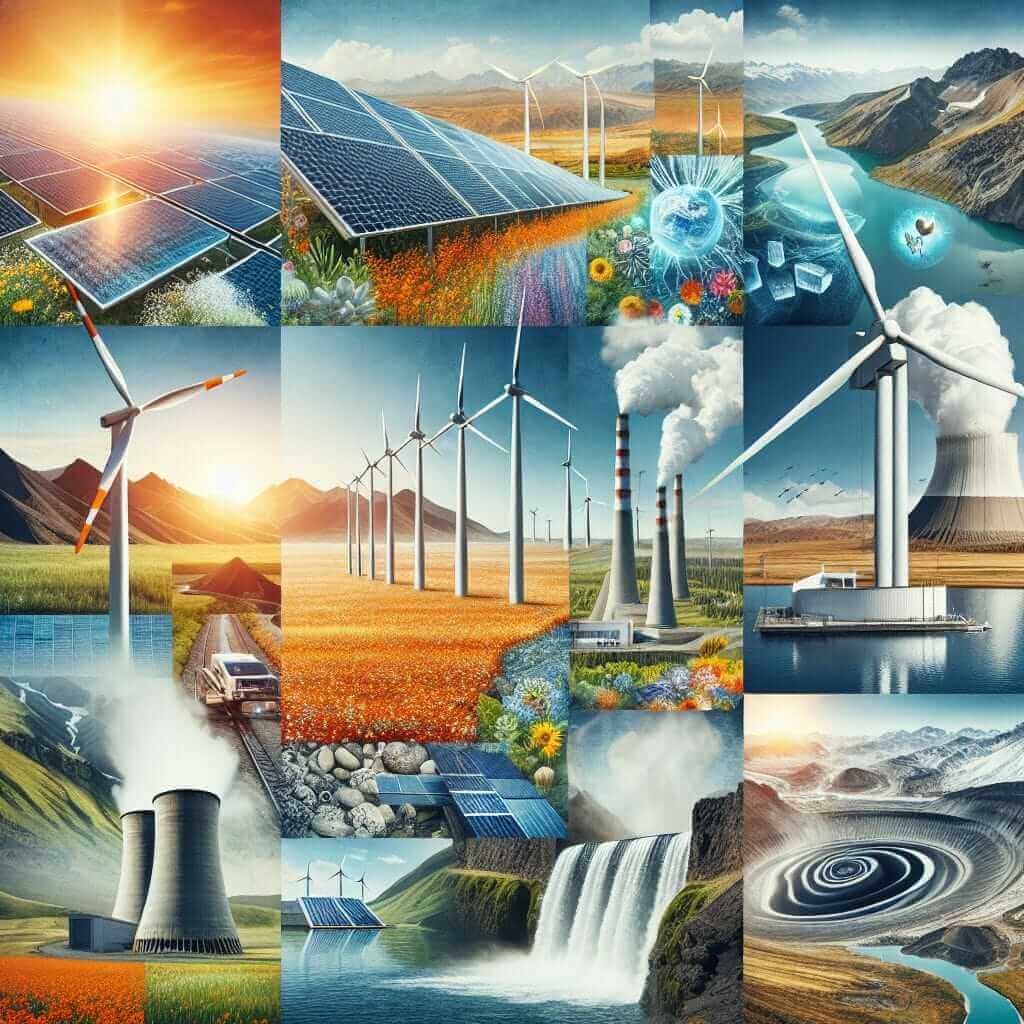The topic of renewable energy sources frequently appears in IELTS Writing Task 2, reflecting its global significance. Understanding this subject is crucial for achieving a high band score. This article delves into the importance of renewable energy, provides authentic IELTS practice questions, and offers a model answer with detailed analysis to guide your preparation.
IELTS Writing Task 2 Practice Questions
Here are some potential IELTS Writing Task 2 questions related to “The Importance of Renewable Energy Sources”:
- The world’s reliance on fossil fuels is unsustainable in the long term. To what extent do you agree or disagree with this statement?
- What are the main benefits of using renewable energy sources? Are there any drawbacks to their widespread adoption?
- Governments should invest more in renewable energy sources and less in fossil fuels. Discuss both views and give your own opinion.
Model Answer and Analysis
Let’s choose the first question for our model answer:
The world’s reliance on fossil fuels is unsustainable in the long term. To what extent do you agree or disagree with this statement?
Model Answer:
It is an undeniable truth that the world’s current dependence on fossil fuels cannot be sustained indefinitely. Fossil fuels, by their very nature as finite resources, will eventually be depleted. Furthermore, their extraction and combustion release harmful pollutants into the atmosphere, contributing significantly to climate change and its devastating consequences. Therefore, I completely agree that our reliance on fossil fuels is unsustainable and necessitates a swift transition to renewable alternatives.
The most compelling argument against continued fossil fuel reliance lies in their limited supply. While estimates vary, most experts agree that we are rapidly approaching peak oil production, after which extraction rates will decline, leading to inevitable energy shortages. This looming crisis underscores the urgency of reducing our dependence on these finite resources and investing in sustainable alternatives.
Equally alarming is the environmental impact of fossil fuel consumption. The burning of coal, oil, and natural gas releases greenhouse gases like carbon dioxide, trapping heat in the atmosphere and driving global warming. This, in turn, has triggered a cascade of environmental problems, including rising sea levels, extreme weather events, and disruptions to ecosystems, threatening the delicate balance of our planet.
In light of these concerns, transitioning to renewable energy sources such as solar, wind, hydro, and geothermal becomes not just desirable but essential. These sources, replenished naturally, offer a sustainable alternative to fossil fuels, capable of meeting our energy needs without jeopardizing the planet’s health. While challenges exist in terms of infrastructure development and storage technologies, the long-term benefits of a renewable energy future far outweigh the initial hurdles.
In conclusion, the world’s reliance on fossil fuels presents an untenable situation. Their finite nature and detrimental environmental impact necessitate a decisive shift towards renewable energy sources. By embracing sustainable alternatives, we can ensure a secure and environmentally responsible energy future for generations to come. (Word count: 298)

Analysis
Structure:
- Introduction: Clearly states the issue (fossil fuel reliance) and the writer’s position (agreement).
- Body Paragraph 1: Explains why fossil fuel reliance is unsustainable due to their finite nature.
- Body Paragraph 2: Discusses the environmental damage caused by fossil fuels and the urgency of addressing climate change.
- Body Paragraph 3: Presents renewable energy sources as a viable and necessary alternative.
- Conclusion: Summarizes the arguments and reiterates the need for a shift to renewable energy.
Vocabulary and Grammar:
- High-level vocabulary: unsustainable, depletion, pollutants, consequences, finite, looming crisis, detrimental, cascade, delicate balance, replenished, viable, jeopardize, untenable, decisive.
- Complex sentence structures: The use of conjunctions (“Furthermore,” “While,” “In light of”) and relative clauses (“…which extraction rates will decline…”, “…that we are rapidly approaching…”) demonstrates grammatical range and accuracy.
- Formal tone: The language is academic and avoids contractions or colloquialisms.
Writing Tips for Renewable Energy Topics
- Use specific examples: Instead of general statements, provide concrete examples of renewable energy sources (solar, wind, hydro) and their applications.
- Support claims with evidence: Use statistics, facts, and examples to back up your arguments about the benefits and drawbacks of different energy sources.
- Address counter-arguments: Acknowledge potential challenges associated with renewable energy (e.g., intermittency, cost) and offer solutions or mitigating factors.
- Show a global perspective: Discuss the implications of energy choices for both developed and developing countries.
Vocabulary to Remember:
- Unsustainable (adj.): /ʌn.səˈsteɪ.nə.bəl/ Not able to be maintained at the current rate or level.
- Depletion (n.): /dɪˈpliː.ʃən/ Reduction in the number or quantity of something.
- Pollutants (n.): /pəˈluː.tənt/ Substances that contaminate the environment.
- Finite (adj.): /ˈfaɪ.naɪt/ Having limits or bounds.
- Detrimental (adj.): /ˌdet.rɪˈmen.təl/ Causing harm or damage.
- Replenished (v.): /rɪˈplen.ɪʃ/ Filled up again.
- Viable (adj.): /ˈvaɪ.ə.bəl/ Capable of working successfully.
- Jeopardize (v.): /ˈdʒep.ə.daɪz/ Put (something) into a situation in which there is a danger of loss, harm, or failure.
- Untenabale (adj.): /ʌnˈten.ə.bəl/ (especially of a position or view) not able to be maintained or defended against attack or objection.
- Decisive (adj.): /dɪˈsaɪ.sɪv/ Settling an issue; producing a definite result.
Conclusion
Understanding the importance of renewable energy is crucial for success in the IELTS exam and as informed global citizens. By familiarizing yourself with the relevant vocabulary, practicing structuring your essays, and exploring arguments from various perspectives, you can confidently tackle any IELTS writing task on this important topic.